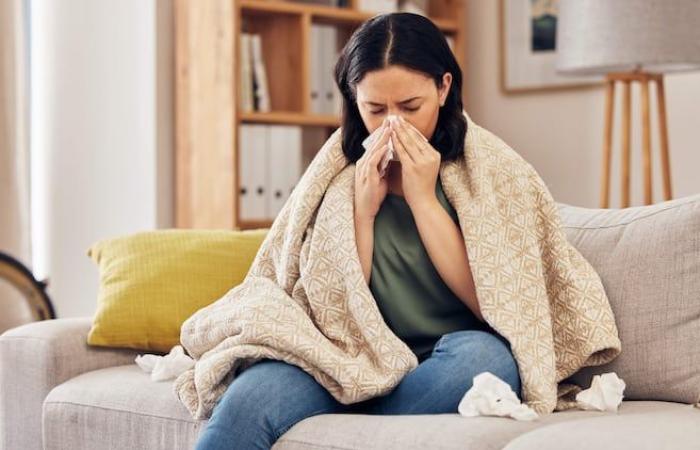Every year, the end of autumn is marked by influenza which arrives without warning and often disrupts the end-of-year celebrations. During this period, if emergencies are overflowing, it is because the flu and Covid are responsible for half of hospitalizations.
Where to get vaccinated?
Offered free of charge in many pharmacies such as those affiliated with the Familiprix Inc. banner, influenza vaccination is a safe means of prevention against the flu. By combining it with the new Covid vaccine, you give yourself a good chance of spending a cold season far from the unfortunate symptoms that these two viruses cause.
“The viruses responsible for influenza, like those of Covid, are constantly mutating, which is why a new vaccine must be developed every year. Since the strains contained in vaccines are those estimated to be the most virulent, others may also be circulating. It therefore remains possible to contract the flu or Covid even after having received the vaccine, but it is better to cover several strains than none,” explains Yann Gosselin Gaudreault, pharmacist-owner, affiliated with Familiprix.
A question of antibodies
Even if you have recently contracted influenza or Covid, it is proven that the potential for the development of antibodies is much lower than that of vaccination.
“Our immune system is a complex system. When our body encounters an infectious agent, it is first the innate immune response that sets out to defend itself and the latter does not always have a good memory. In the case of vaccination, it is adaptive immunity that comes into play. It is this which has a longer-lasting memory,” popularizes the pharmacist for whom vaccination is a favorite subject.
There is no fear of overloading our immune system by administering multiple vaccines at the same time.
To find out more about the immunology of vaccination, find out more on the website of the Ministry of Health and Social Services.
Side effects
If the mere thought of the adverse effects of vaccination makes your interior weather cloudy, know that in the majority of cases, the effects persist for less than 48 hours.
“We are talking about localized reactions such as pain or swelling at the injection site. More rarely, fever and nausea have been reported,” confirms Yann Gosselin Gaudreault.
The benefits of vaccination therefore far outweigh the risks of illness or discomfort linked to the vaccine.
Let’s increase the vaccination coverage rate
Some people are still hesitant to get vaccinated because they fear that vaccines will cause infection.
“In reality, the flu vaccine contains fragments of inactivated or attenuated virus to stimulate the immune system of the person receiving it. Vaccination is therefore safe and cannot under any circumstances transmit the disease. In Canada and the World Health Organization (WHO), there are several surveillance programs related to vaccination. These programs ensure, among other things, the quality and safety of the vaccines offered,” specifies the pharmacist.
Canada’s national vaccination coverage targets are 80%. However, only 44.4% of adults received the flu vaccine during the 2022-2023 flu season. In Quebec, our rate corresponded to 33.6%.
“If more people get vaccinated, then there will be fewer people affected, less suffering, less absenteeism, fewer hospitalizations, fewer expenses related to the health system and above all, fewer deaths. We must therefore keep in mind that it is our collective health that will be improved,” concludes Yann Gosselin Gaudreault, who invites not only families with young children, the elderly, pregnant women and immunosuppressed people to be vaccinated, but the entire population.
To learn more about vaccination, consult your pharmacist, open the discussion and ask questions.
To make an appointment at a participating pharmacy affiliated with the Familiprix inc. banner.
The pharmacist owners affiliated with Familiprix are solely responsible for these services offered.
Sources
National Institute of Public Health of Quebec (INSPQ). COVID-19 data in Quebec.
National Institute of Public Health of Quebec (INSPQ). Surveillance for influenza and other respiratory viruses.
National Institute of Public Health of Quebec (INSPQ). Monitoring of hospitalizations associated with SARS-CoV-2 and other respiratory viruses, 2023-2024 season. April 6, 2024.
Government of Canada. National vaccination coverage targets and national targets for reducing vaccine-preventable diseases by 2025. Updated August 16, 2022. Accessed April 19, 2024.
Government of Canada. National adult vaccination coverage survey (ENCVA): 2023 results. Updated January 17, 2024. Accessed April 19, 2024.






